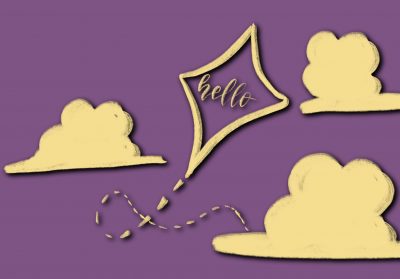Many of us spent the past year consumed by uncertainty, worry and a longing for some sense of familiarity. Who would have thought we’d find ourselves struggling to acclimate back to all the usual ways of living we once took for granted?
Needless to say, the virus put so much space between ourselves and all of the day-to-day norms we had come to memorize. After a year spent adjusting, the reentry of these same norms now stands out as a jarring indicator that things have yet again changed.

As we approach a “normal” that is more like the one we used to know, our transition to regular life may not be so smooth because we are simply different from the people we used to be.
Although the return to the world we recognize and love deserves to be celebrated, there are some lessons we learned throughout the pandemic that may be worth holding onto. Along with all the tragedy and loss we experienced, we also found perspective.
The meaning we attach to basic social interactions has now been made apparent and far more important in the wake of the pandemic — when the absence of such simplicities carved a gaping void in our lives.
A “hello” from a smiling stranger is no longer just a greeting but a breath of ease, comfort and excitement. A compliment from a friend or a reaffirming smile after a joke you told has the ability to energize us in ways we may have brushed off in the past.
Hopefully, we can hold onto the value of these social exchanges and all the special moments life offers us, as we lean back into routine living. We should always appreciate the meaning in the tiny things — the subtle displays of kindness and connection that underpin the human experience — and remember all that they do for us.
Before the spread of the virus, our society perpetuated an unsustainable expectation of work-life balance: one that emphasizes a workaholic mentality that prompted both physical and emotional strain. Burnout, fatigue and stress were all regular parts of what it meant to be working hard in your career.
Workplaces tended to regard sick days without as much consideration, which reinforced the pressure to come into work unwell. Employees and students were essentially rewarded for showing up in person, regardless of their wellbeing, because it sent an underlying message of commitment and disciplined work ethic.
Although we may know this is not the appropriate way to approach sickness or to assess an individual’s diligence in any setting, these norms have been baked into work culture for a long, long time.
The events of the past year forced each of us to not only be accountable for our own physical health and safety, but for the safety of others. Working past your personal threshold of exhaustion was no longer deemed acceptable, and the boundaries we set for our own comfort and protection finally came to fruition in the world around us.
Society’s overall concern for health began to trickle into all pockets of wellness, pushing emotional and social wellbeing up the ladder of priorities. Conversations about mental health started to take place everywhere, creating a much more open dialogue around emotional regulation and how we each really feel.

As we know, every aspect of our well-being is deeply connected. Wellness embodies more than our physical health, and there is not just a random gap between our bodies and minds. To maintain healthy wellbeing, we have to be in tune with all aspects of ourselves — an awareness that the pandemic may have helped set into motion.
As we advance into the near future with hopes of engaging fully with society again, we should carry with us the different angles on life we viewed during the pandemic. There is something to be said about experiencing our lives come to an unimagined standstill. What we can learn from it is for us to decide.






















































































































